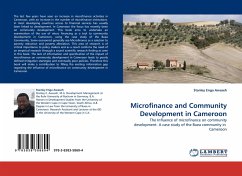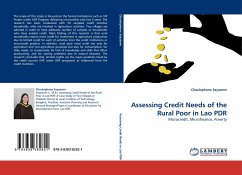
Gender Mainstreaming and Results-Based Management
The Case of the ILO for Microfinance and Sustainable Enterprises
Versandkostenfrei!
Versandfertig in 6-10 Tagen
32,99 €
inkl. MwSt.

PAYBACK Punkte
16 °P sammeln!
Assessment of gender mainstreaming has been done for years but is being reviewed through the lens of results-based management. On the area of employment, the informal economy retains more and more attention because of its capacity to absorb labour. Its gendered dimension and the promises of entrepreneurship have put small enterprises as a one of ILO's interests. Microfinance has been encouraged for being empowering for women. Yet, gender inequalities remains but the political engagement of actors and the new performance management tools in place hold a great potential for change. This study ex...
Assessment of gender mainstreaming has been done for years but is being reviewed through the lens of results-based management. On the area of employment, the informal economy retains more and more attention because of its capacity to absorb labour. Its gendered dimension and the promises of entrepreneurship have put small enterprises as a one of ILO's interests. Microfinance has been encouraged for being empowering for women. Yet, gender inequalities remains but the political engagement of actors and the new performance management tools in place hold a great potential for change. This study explores how gender performances can be enhanced by using indicators that capture the quantitative and the qualitative transformations and why the techniques can be appealing to address other aspects of gender like the dynamics of gender relations.












